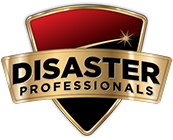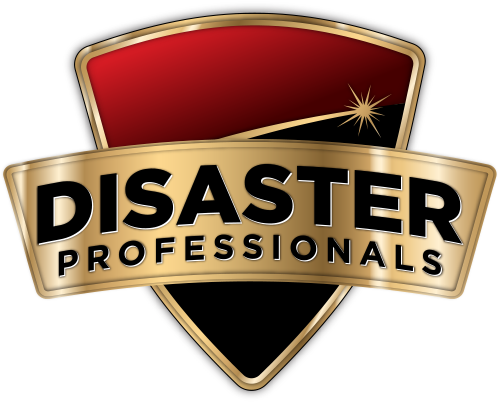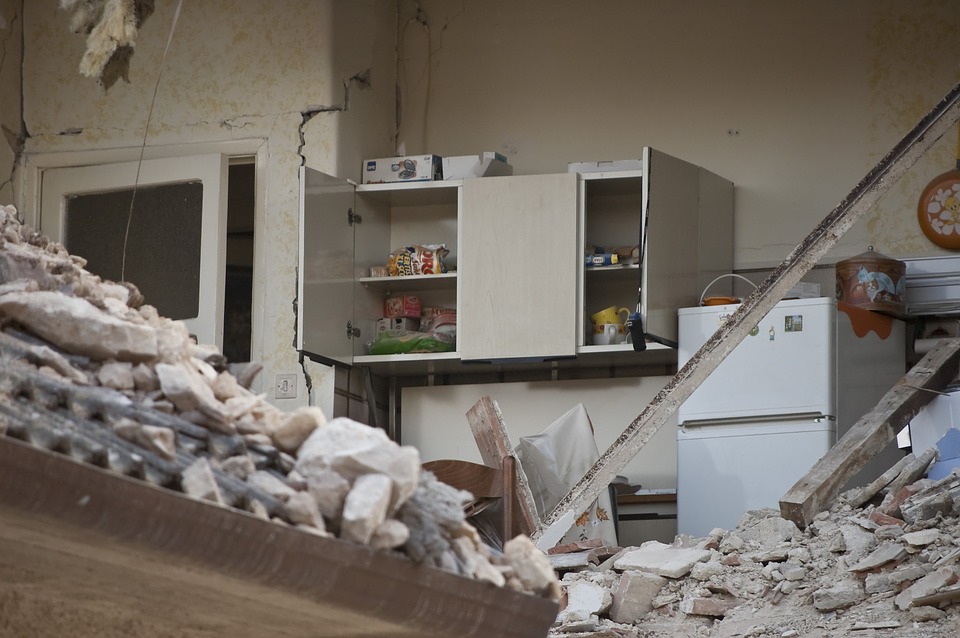Earthquake Preparedness
Earthquakes can occur anytime, anywhere, and they have the potential to cause devastating damage. Knowing what to do if you find yourself caught in one is critical for ensuring your safety and survival. Here are some preparedness tips for before, during, and after an earthquake, brought to you by our disaster restoration experts.
Before
- Prepare Your Home
- Identify Safe Places in the Home
- Purchase Supplies
- Make a Preparedness Plan
You can’t guarantee that every place you’ll ever go will be secure in the event of an earthquake, but you can prepare your home to be earthquake safe. Bolt heavy furniture and items with the potential to fall (TVs, picture frames, mirrors) to the walls, and make sure they’re moved away from places where you or your family sleep or sit. Having a heavy mirror hanging above your bed or a large cabinet right next to a well-loved sofa could be life-threatening if they fall during a quake. Store breakable items as low to the floor as possible to reduce the risk of being injured by sharp shards, or at least make sure they’re stored in secure places. You should also ensure your home’s foundation and structural integrity is up to par. Keep an eye out for signs of structural weakness such as bowed walls, uneven floors, or unnatural cracks, and don’t put off renovations you know are urgent. You can even have your foundation professionally evaluated for safety and stability.
If you’re lucky to be inside your home when an earthquake hits, it’s important to know beforehand what areas of your home are the safest. Precious seconds that could be used getting to safety shouldn’t be lost scrambling over what to do and possibly choosing a dangerous spot. Safe places in your home are locations protected from windows, tall furniture, breakable objects, lighting fixtures, and/or anything that could fall and cause harm. Doorways are often promoted as the safest place to be during earthquakes. Though they’re better than nothing if you have no better alternatives nearby, the truth is that they really aren’t the best option. They’re no stronger than any other part of the home, and simply standing in an open doorway leaves you prone to falling debris and hurtling objects, which are the most likely cause of injury you could sustain. You’d be much safer taking refuge under a solid piece of furniture like a table or a desk.
Buy an earthquake kit that contains an array of necessities for after an earthquake, such as first aid supplies, flashlights, water, food, blankets, batteries, matches, dust mask, sanitation items, and a radio. You should also customize your kit to include prescriptions, non-prescription medications, phone numbers, local maps, cash, clothing, games, spare cell phones and chargers, or anything else you think you may need. Keep a kit in your home and place extra kits in your car, office, and locations you frequently go to. Periodically inspect them for any supplies that need to be replaced or added. You can’t provide for every possible scenario, but you can at least ensure that you’ll be better prepared.
Make sure you and your family have a preparedness plan that includes evacuation routes from your home and other places you visit often, reunion spots where you can meet up if anyone is separated, contact names and numbers of family and close friends, and the location of emergency supplies you’ve assembled. You can also take part in a first aid class or a preparedness seminar to become better informed. The most important thing for you and your family to prepare for before an earthquake, though, is what to do during one to survive.
During
- Take Cover
- Stay in Place
Strong tremors during an earthquake could make moving very difficult or even dangerous, but if you can safely get to a more secure position as soon as a quake begins it could increase your chances of making it out safely. As we mentioned above, avoid glass, lighting fixtures, and any tall furniture or unanchored objects that could fall and cause injury. If possible, forgo a doorway for a solid piece of furniture you can take cover under. These are the safest spots you can find indoors. Even if your home were to collapse (which is a rare occurrence, especially if you live in a home with a strong foundation) the furniture would take the brunt of the damage and protect you. Once you’re in a safe location, cover your head with your hands and try to stabilize yourself until the shaking stops.
This may seem contradictory to the last tip, but it’s an important distinction to point out: if you’re already in a safe place when the shaking begins, stay there and don’t risk moving to another location until the quake is over. Limiting your movements reduces the risk of injury. If you’re outdoors, only move if you have to get away from a falling hazard like trees or signs. The greatest danger lies in staying directly outside buildings, in doorways, or near exterior walls. If you’re driving, immediately pull over to the side of the road away from ramps or bridges. Remain inside the vehicle with your seat belt on until the earthquake has ended.
After
- Move to Higher Ground
- Check for Injuries and Damage
- Connect
- Recover
Especially forceful earthquakes can trigger tsunamis along the coastline. Immediately following a quake that is either too powerful to stand up during or that lasts longer than twenty to thirty seconds, you and your family should move away from the ocean (if you live on a shoreline) and up to higher ground, preferably by foot to avoid traffic hazards. Don’t wait for officials to issue a warning or an evacuation alert; tsunamis have been known to follow earthquakes in as little as ten minutes.
Once the shaking has died down, assess yourself and/or others around you for injuries. For injuries that require urgent care, seek medical assistance as soon as possible, or you can administer basic first aid yourself. Next, take a moment to identify potential hazards in the surrounding area. Fallen electrical lines, flooding, gas leaks, structural damage, broken glass, or small fires could present additional risk and require you to clear the area immediately.
Communication is crucial to surviving and eventually recovering from an earthquake of any size. Retrieve your emergency preparedness supplies if possible and take advantage of any radio (battery operated, solar, or hand-crank) or spare cell phone inside. Use your radio to receive emergency broadcasts, safety advisories, evacuation notices, and any other information pertinent to your safety. Get in contact with loved ones using any phone you have available and update each other on your status, then stay off the phone unless you have to make an urgent call. Responders cannot reply to attempts at lifesaving communication if the phone lines become too busy.
Don’t assume you’re out of the woods if you’ve made it out of an earthquake relatively unscathed. The days following an earthquake can be just as dangerous as the event itself. Aftershocks will likely continue to happen days or even weeks after the original seismic shock and could be large enough to cause further damage. But even if aftershocks persist, your recovery process can and will continue. Learn where to find food, first aid, emergency housing, supplies, and financial assistance. If your home or property has been damaged, contact your insurance agent and look into disaster repair options as soon as possible. Make sure your emotional care and recovery is a priority as well. It will take some time, but slowly you can begin to work on getting your life, home, family, and normal routines back in order.
The unpredictable nature of earthquakes is alarming to think about, but remembering and acting upon these tips will give you guidance if you ever find yourself affected by one. Being prepared, equipped, and informed is key to keeping yourself and your family safe.
Do you have any questions or concerns? Disaster Professionals offers 24/7 emergency restoration services to help keep you safe and assist in your recovery process. You don't have to face the aftermath of a natural disaster on your own.



